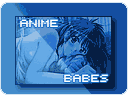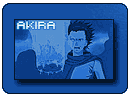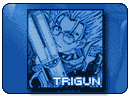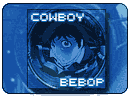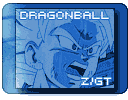It is not so much the movie against the comic book
because the mediums work together. Following slightly different paths, the
story is the same and each has its own merits. I watched the movie before
reading the books and was intrigued by Otomo's ideas straight away. The
story was complex, but this didn't put me off as I tried to understand its
concepts. I think the viewer is rewarded after repeat viewings; after the
third time, the story seemed to get better and better. The seventh time
was a joy because I understood the characters and their motivations and
the storylines fitted together noticeably well.
Comic books were something I got into in a big way six years ago, and
with an interest in Chinese/Japanese culture, it wasn't long before I
discovered the range of translated manga in 'The American Comic Shop'
and 'Whatever Comics', my local stores. I discovered the Akira story in
Graphic Novel form, and 'Manga Mania Magazine' ran it in its entirety.
This story was not unlike the film, which was an initial plus point, but
its focus was largely on events after Akira's second mental blast which
ended the movie, and made it well worth reading.
--------------------------------------------------------------------------------
The Manga
I think the comic is superior in its storytelling capabilities, and because
it ran for 37 volumes over a ten year period (1983-93), and 3 subsequent
volumes after '93, it enabled more character/story development than the
film could. Otomo created several characters which didn't make it to the
anime including Lt Yamada, Chiyoko, and Tetsuo's Lt/Commander but this
good because they were not necessary in the story, and leaves the original
with an extra dimension/difference.
The build-up of Tetsuo's power is played to greater effect as his initial
drug habit suppresses his power. As he stops taking the drugs, he has
the potential to become as strong as Akira which prompts the Colonel,
Miyako, the Espers, Kay, and Kaneda to confront him before he attains
such god-like status.
The manga sees two nuclear-like explosions, the initial by Akira and
a lesser one from Tetsuo and he is also the cause of numerous other explosions.
He does this as his power is too great- greater than him- self and it
ultimately destroys him. The mass destruction Neo Tokyo receives is played
out over many pages at different times; something the anime lacks until
the finale, and this build-up creates a tension that was never utilized
on screen.
I thought the emotional side was strong as each character's personalities
were finely crafted. To me they were all distinct individuals whose interaction
with others made for some dramatic scenes. Such as the 'Commander's' relationship
with Master Tetsuo. In front of him, he was very loyal, and humble, but
really wanted power for himself (leading armies) and eventually ordered
the death of his Master.
Overall: The manga is very gripping as the story is riddled with consistent
drama and social insights. Complex issues are usually explained, as in
all comic books, using characters' prose which is seen by the omniscient
reader. This technique makes the story easy to follow, easier than the
anime which cuts from one scene to another quickly with little descriptive
narrative.
Aside from financial expence, another drawback is that the atmosphere
has to be created simply by pictures as there is no dimension of sound
and specific movement.
--------------------------------------------------------------------------------
The Anime
The film is a quality adaptation not just technically wise, but through
considerate homage to the original story. Both are similar but the movie
is condensed. The same ideas and themes remain and the cinematic, storyboard-like
layout of the manga must have helped achieve successful adaptation and
translation.
Working in the medium of celuloid animation was a good choice by Otomo,
where he could have opted for a live-action film. The greatest advantage
is in creating mass destruction on a low budget and without any safety
hazards! (well, those brush- tips can be pretty lethal)! ^__^
Being a fantasy story, Otomo's visions could also be met exactly.
The Tokyo of 'Akira' comes alive with the visuals and sound of the anime.
Vibrant colours, literal movement, and sound give it, and its characters
a little more life/ substance. However I still favour the manga counterpart
because one can imagine their voices, and see their personalities through
the way they are drawn in each frame and through the language they use.
Visually, my favourite parts are the opening shots of Neo Tokyo where
lights from buildings, street lamps, and vehicles ignite the sky. Not
forgetting the wonderful light trails that the motorbikes' lamps give
off as they speed along!
The sound is what gives the film its quality too, from the background
engines, sirens and the like, and grandiose orchestral soundtrack, to
the actual voice actors' roles. I specifically like the way certain events/characters
have their own signature tunes- the Clowns' "DAH DAH EEE HAAA",
the children's attack on Tetsuo in the hospital which similarly uses a
full choral tune, the calming "Akira. . . . Tetsuo. . . . Kaneda"
(a clip of which can be heard on this page), and the memorable percussion/woodblock
ending tune. I know a great deal of effort went into producing these tracks
and the results do it credit.
Which inevitably leads to voice actors. However this, along with a 'dub-sub'
and 'widescreen and pan-and-scan' debate will follow in the not too distant
future!!
Overall: The anime has a lot to offer in its 124 minutes and is well
structured considering its original copious volumes. I like the way the
whole Akira story has been touched on and the film is light enough to
be watched for entertainment while having a deep, complicated, and intellectual
undertone/ moral. Unafraid in its depiction of contrasting personalities
and wealth of turbulent emotion, its characterisation is also a positive
aspect, well converted from the manga.
--------------------------------------------------------------------------------
Conclusion
The layout and pacing of the original translated well to animation, and
its
themes are universally understood. I think the manga is perhaps a little
more 'sophisticated' in that it's not a 'quick-fix' series and that to
appreciate
it fully, one has to be patient, despite it being compelling.
Without a doubt I thoroughly enjoyed the anime for its slick design and
fast-paced action. Despite it being 11 years old it has, to this day,
stood the test of time and I consider it to be one of the finest films
I have seen. I particularly like the introduction
with the gangs and the character's first appearances were constructed
in such a way that one knows that person is special. For example, in Kaneda's
first appearance in the Harukiya his back is turned to the 'camera' instantly
giving an impression of his personality. The same is said of the Colonel
whose face takes the whole screen in the military helicopter, reflective
of his domineering trait.
With one medium matched against the other, I favour the manga over the
movie by a hair. Both are extremely well constructed and are effective
separately as well as a complement to each other. My hat goes off to Otomo
and his staff.

